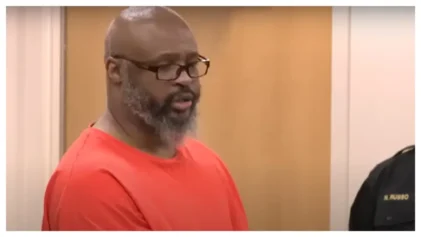Talented shooter and 2-time NBA champion Craig Hodges’ 10-year career came to screeching halt after giving President George H.W. Bush a letter that demanded that he address the issues plaguing Black people.
During a Feb. 5 NBA-TV interview, Hodges told the interviewer that he has no regrets about giving Bush the letter because “my cause is my people. And I think that it’s not only noble, but it’s worthy and it’s time to do it.”
He recalled his grandfather and uncles teaching him about the history of Black athletes risking it all to give back. Hodges’ activism was inspired by “conscious athletes” like running back Jim Brown, boxing legend Muhammad Ali and others who he said were able to balance consciousness and their careers in sports.
In 1992, after the Los Angeles riots, the then-Chicago Bulls player went to White House after winning the world championship, but he went there for more than a handshake with Bush. While his teammates wore conventional suits and ties, Hodges showed up in a Daishiki and a letter specifically detailing issues Black people deal with.
Per White House protocol, Hodges could not hand the president any object, but he did give his letter to the Press Secretary. From that point on, he was essentially blacklisted.
“I’d never think that me going to the White House asking President Bush to consider the issues of Black people would cost me $40 million-$50 million,” he says. “I’m leading the league in 3-point percentage, I’m a 2-time world champion, 3-point shooting champion and … can’t nobody use my services?”
Hodges took the NBA to court in 1996 for allegedly blacklisting him, but he would ultimately lose his fight.
While today’s Black athletes like Cleveland Cavaliers player LeBron James and San Francisco 49ers QB Colin Kaepernick are able to make bold political statements and keep their jobs, Hodges did not have that luxury. He told the interviewer that today’s players can craft their own narratives with social media, but that he holds no grudges after 25 years.
“It’s the poor people’s program that Dr. King was on when he died,” Hodges says. “He gave us the evil triplets — racism, militarism and economic exploitation. If we deal with those three, we will deal with all the ills on the planet. And those are the marching orders he left for me.”


